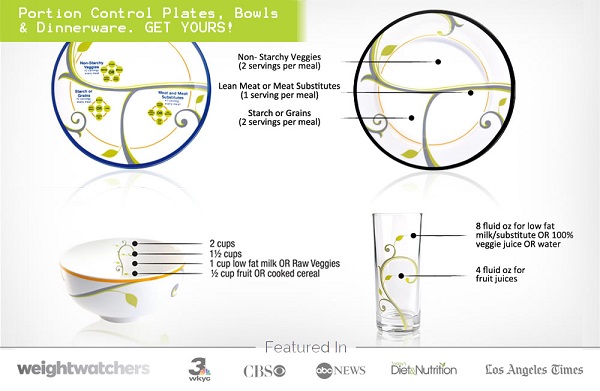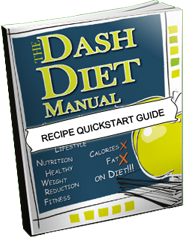Garlic is one of the most popular spices out there. Despite its strong taste which makes it hard to consume by some, garlic makes for a surprising ingredient that otherwise makes dishes taste bland.
If you have a thing for Asian cuisines, even more so that you will get to expose yourself with this typical spice, much to even developing a preference for it.
But while essential as part of most cuisines, garlic has also its uses aside from food—it is also known for its many health benefits, too, so much so that it can fulfill certain therapeutic roles better than synthetics medications.
Garlic for High Blood Pressure Facts
One of garlic’s known benefit is in its ability to regulate blood pressure which comes as a special boon among hypertensive individuals.
But what is it about garlic that makes it so potent in controlling high blood pressure?
1. It’s a natural vasodilator
Our cardiovascular system is partly comprised of blood vessels, which facilitates the flow of blood across the whole body. Essentially made of soft tissue, every blood vessel in the body has the capability to constrict and expand, depending on certain conditions.
As a rule of the thumb, the body’s blood pressure lowers whenever these blood vessels expand and conversely heightens whenever they constrict. Bearing a certain vasodilating property via allicin, garlic works naturally in mediating the body’s blood pressure through better blood circulation resulting from a more widened pipeline for blood (Ried, K. & Fakler, P., 2014).
2. It has nitrates
Garlic has the potential to combat hypertension through a number of ways, all of which boiling down to the relaxation of the blood vessels, resulting to vasodilation. One of the mechanism behind the benefit involves the garlic’s abundance in having nitric oxide-forming, nitrates (Al-Qattan, K. et al, 2006).
In medical science, nitric oxide is renowned for being able to induce tissue dilation in the blood vessels.
3. It produces hydrogen sulfide
Hydrogen sulfide was once a name of notoriety for its perceived toxicity as a substance. Further interest and recent study, however, had found out that this gas also has the same effect as that of nitric oxide in the body (Meng, G. et al, 2014).
That only means that the power of garlic to control a case of elevated blood pressure does not just happen via the nitrates it contain, but also through the hydrogen sulfide it generates once it entered the body.
4. It blocks angiotensin II
Angiotensin II is a known hormone that has direct influence to the body’s blood pressure. Two of angiotensin II’s capability to promote increased blood pressure includes its power to induce vasoconstriction—the tightening of the blood vessel tissues—and the person’s increased craving for salt.
Using an animal model, a study by Mansour, M. et al (2012) has found a correlation between garlic consumption and the downregulation of the expression of the angiotensin II hormone in target tissues. Raising the possibility that the same is also true for us humans.
5. It reduces craving for salty foods
Drawing from the same study which established the counteracting effect of garlic against the hormone angiotensin II, an idea is derived which states that people who consume the spice are less as likely, if at all, to crave for salty foods.
By significantly offsetting the body’s desire for sodium, a mineral that is known to induced an elevation of the blood pressure (Ha, S.K., 2014), people get an indirect benefit of maintained blood pressure for not consuming salty food.
6. It has mood-boosting potency
Using an animal model for the study, specifically involving diabetic rats as subject, it has been found out that a healthy supplementation of garlic aids in the alleviation of anxiety- and depression-related behaviors. A link which the researchers (Rahmani, G. et al, 2018) draw from the benefit of garlic against oxidative stress that takes place in the brain.
Knowing how a negative mental state such as anxiety and depression cause tension to the human body, the finding raises a potential of garlic providing the same benefit on humans. The benefit also being that, by addressing some common causes of stress, people are able to attenuate the probable risk to high blood pressure through garlic consumption.
7. It promotes good sleep
Aside from our mental state, another major cause of stress to the human body—and therefore a cause for an increase in blood pressure—is lack of sleep, which some people get through a medical condition called insomnia.
While there is a myriad of probable causes as to why a person would find it hard to sleep, one contributing factor to the issue is tensed physical state.
Previously, however, we have established that one of the benefits of eating garlic is its ability to relax the body’s tissues, particularly the blood vessels.
But, as it appears, the advantage is also systemic in effect, paving way to a condition where the body is relaxed (Aqel, M.B., et al, 1991) and is able to go through sleep more easily.
8. It decreases cholesterol
Garlic is a powerful and natural anti-lipidemic that is capable of reducing the amount of unhealthy fats that impedes good blood flow. This benefit is very important in the fight against hypertension due to the inextricable link between clogged arteries and increased blood pressure (Centers for Disease Control and Prevention, 2011).
9. It prevents weight gain
A research conducted by Elkayam, A. et al, 2003, has found that the allicin that is endemic in garlic has the power to offset animal subjects from gaining weight versus those which were not given the same substance during the study.
While still a topic for human trials, it raises hope of employing the benefit to prevent people from gaining weight, which itself is a known factor in the occurrence of high blood pressure.
10. It is easily accessible
Garlic is an easy crop to source or produce (The Complete Book on Onion & Garlic Cultivation with Processing, 2015). Literally a staple spice across the globe, no civilization is ever a stranger to garlic. This easily makes the garlic a very accessible means to maintaining good blood pressure, especially by those who need it most.







 We're committed to bringing you the best in health and helping you discover the wonderful world of the DASH diet. If you're looking to control your blood pressure, hypertension, or just looking to get into great health, we're here to help.
We're committed to bringing you the best in health and helping you discover the wonderful world of the DASH diet. If you're looking to control your blood pressure, hypertension, or just looking to get into great health, we're here to help. 



